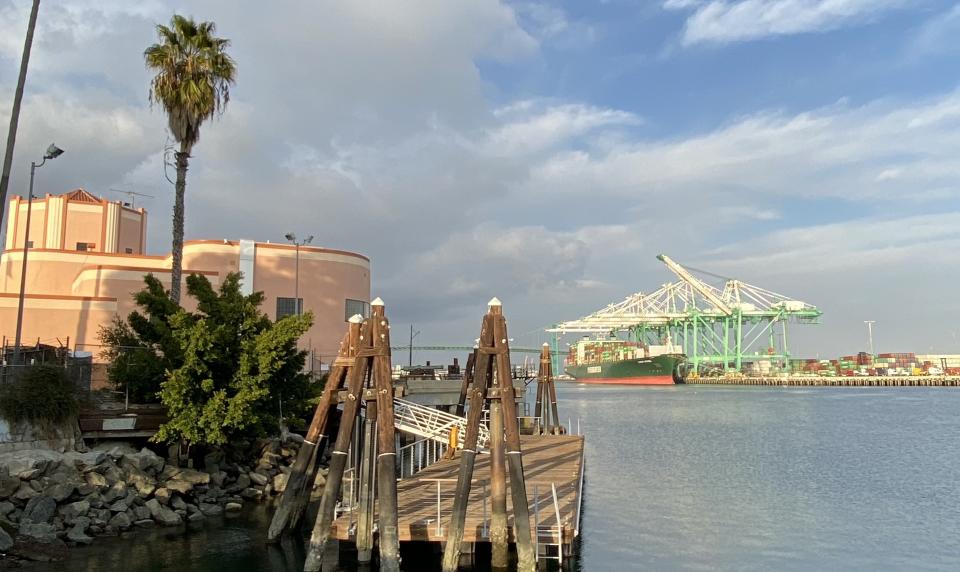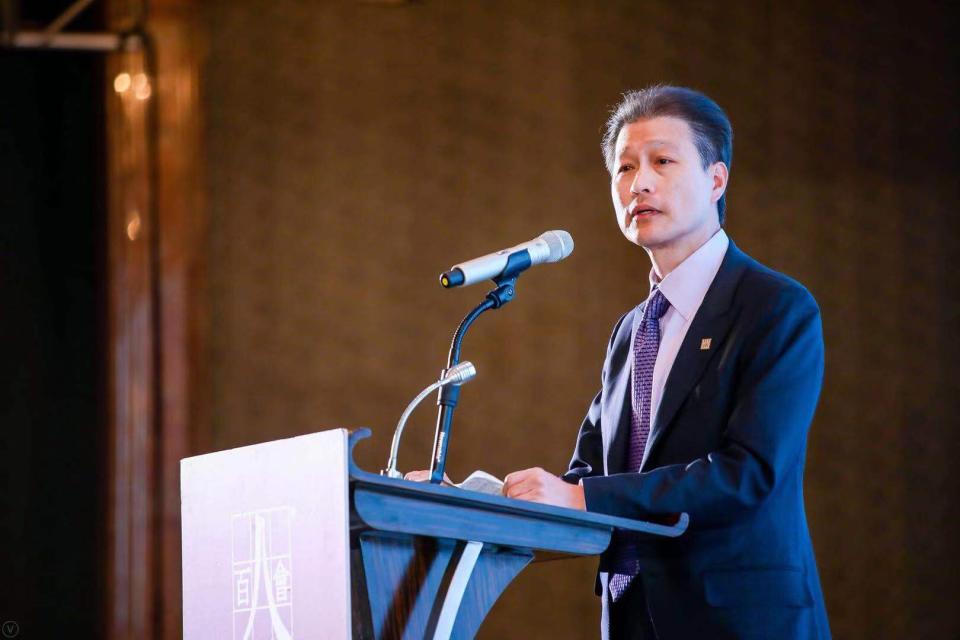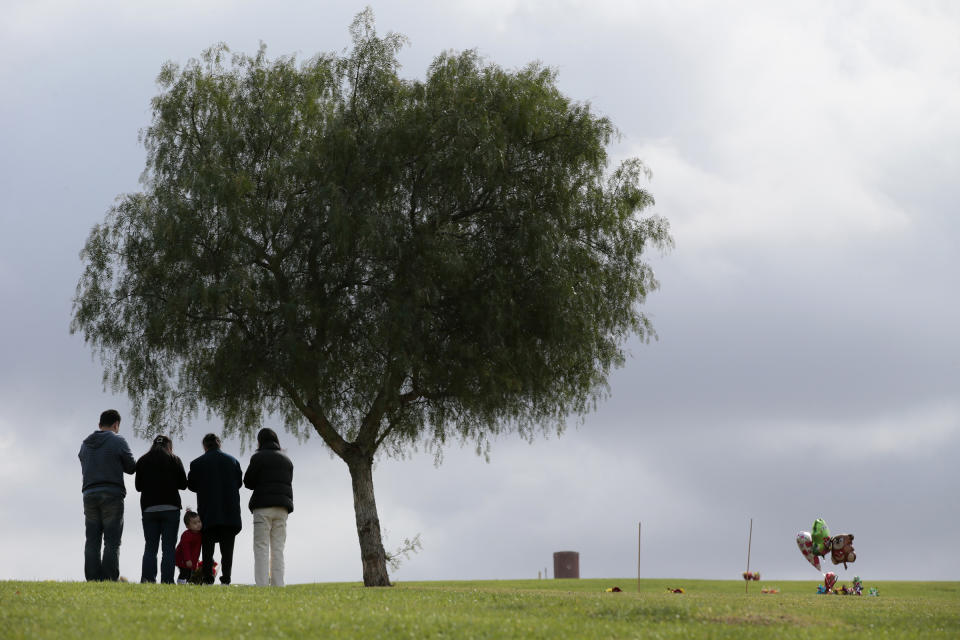'This is the new normal': California businesses pessimistic on phase 2 deal

Despite a “phase one” deal officially signed with China Wednesday, businesses heavily exposed to trade between the world’s two largest economies worry the damage has already been done.
In California, industries from banks to cemeteries have felt the impact of the trade war and expressed pessimism over the odds of seeing relief under a “phase two” signing.
On Wednesday, President Donald Trump signed a phase one deal with Chinese Vice Premier Liu He. Although the phase one deal steered clear of additional tariffs being applied, it does not remove existing 25% tariffs on about $250 billion of goods. Trump said Wednesday all tariffs would come off when phase two is negotiated, although it’s not clear whether that would occur before the 2020 election.
In the meantime, effects are still being felt in California, which itself would represent the world’s sixth largest economy by GDP. The Golden State is also home to America’s largest port by container volume and cargo value. In November, the Port of Los Angeles saw exports fall over 9% year-over-year, the 13th consecutive month of contraction in U.S. goods shipped abroad.
Gene Seroka, executive director of the Port of LA, says a phase one trade deal is encouraging, but doubts that its signing will restore export activity at the docks in San Pedro. Seroka said that China contractual agreements to buy soybeans from Brazil make it unlikely that export activity will recover instantly.
“There is not going to be a lever we can pull once this phase one is designed and all this cargo comes back,” Seroka told Yahoo Finance.
Movies and cemeteries
But even outside of industries directly tariffed by the trade war, business relationships between the U.S. and China have been fractured amid China’s crackdown on capital outflows.
Chinese movie studios, for example, have historically provided large sums of financing for American movies to find films for export to the Chinese market. They also hope to learn from American movie studios about how to create international films of their own.
Los Angeles-based East West Bank (EWBC), the largest Chinese-American bank in the country, is one of the biggest players connecting Chinese investors with U.S. movie projects looking for financing. But East West CEO Dominic Ng told Yahoo Finance that “not a drop of money” from China flowed into Hollywood in the last year. Broadly, Ng said cross-border investments from China into the U.S. have tightened up since 2017.
“Politically it’s just not appropriate when you have the parents fighting,” Ng told Yahoo Finance.

Ng says he has steered clear of many Chinese-funded commercial real estate projects in Los Angeles, but noticed that fewer project proposals have come across his desk amid reduced investment flows into the U.S.
In another effort to channel investment back into the Chinese economy, Chinese regulators in 2017 imposed a RMB100,000 (about $15,530) cap on the amount of cash that users can annually withdraw from Chinese bank accounts while in other countries.
One industry that’s been particularly affected: funeral services. Service Corp. International (SCI), one of the largest publicly-traded death-care stocks, owns 483 cemeteries in the U.S. and Canada but points to Rose Hills cemetery, in the eastern Los Angeles city of Whittier, as one of its largest sales drivers.
Rose Hills caters to a large Chinese population in LA, and restrictions on overseas cash withdrawals have made it difficult for consumers to purchase pre-need funeral arrangements. SCI management said in October that sales at Rose Hills and two heavily Chinese-focused locations in Vancouver accounted for a “body blow” $18 million decline over the first three quarters of 2019.

“We're just assuming that we continue to see some challenges around that Chinese consumer segment,” SCI President Tom Ryan told investors Oct. 31, saying earnings for the company’s final quarter would be on the lower end if headwinds continued.
‘New normal’
The phase one deal would commit China to buying at least $200 billion more in U.S. goods and services. But U.S. companies will continue to pay 25% tariffs on about $250 billion of goods manufactured in China until phase two is signed.
In August of last year, Port of LA warehouses were 99% full with inventory that importers hurriedly shipped to the U.S. to avoid the Sept. 1 tariff deadline. The port’s warehouses have since loosened up the vacancy rate to between 3% to 4%, which he says is still unusually low.
With uncertainty over phase two and incomplete trade resolutions with the EU and Canada and Mexico, Seroka says phase one leaves a lot of structural challenges for U.S. companies.
“This is the new normal,” Seroka said.
One reason: U.S. firms have not been able to figure out an alternative to “made in China.” Although imports from Southeast Asian countries like Vietnam and Thailand have increased during the trade war, companies hoping to shift their supply chains have had trouble finding factories in new markets that can produce the volume of product at the quality that Chinese factories did. The Port of LA says for every container imported from a Southeast Asian location, it lost 2.5 containers from China.
At East West, Ng has doubts that there will be a phase two deal. His company has voluntarily pared back its loan pipeline, exiting about $250 million in commercial and industrial loans over the past couple of years due to possible tariff impacts.
Still, shares of the “bridge bank” between the U.S. and China have fallen about 2% over the last 12 months, compared to 26% gains on the S&P 500 over the same period.
“I think 2019 was a transitional year that people rightfully worried about the world falling apart because the U.S. and China were fighting and so we became collateral damage,” Ng said.
But Ng touted the company’s strong mortgage business in light of a healthy U.S. consumer, insisting that the company can weather the tariffs in this new normal environment.
Brian Cheung is a reporter covering the banking industry and the intersection of finance and policy for Yahoo Finance. You can follow him on Twitter @bcheungz.
Boston Fed President Eric Rosengren speaks with Yahoo Finance [Transcript]
Boston Fed's Rosengren: 'We don't need to do very much at all' on interest rates
5 major themes from this year's largest gathering of economists
America's economy needs to pull more workers into the labor force: Fed officials
‘The weirdest place in the world’: What the Fed missed in Jackson Hole
Read the latest financial and business news from Yahoo Finance
Follow Yahoo Finance on Twitter, Facebook, Instagram, Flipboard, SmartNews, LinkedIn, YouTube, and reddit.
